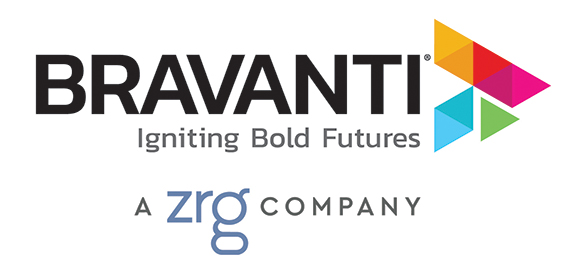By Bravanti
In the ever-changing COVID-19 environment, we keep hearing that we’re all in this together. But what does that particularly mean in terms of our careers and relationships? Is there something we can all be doing differently when it comes to networking? How can we continue to support each other?
Networking for the Employed
Networking isn’t just for those seeking employment. The call to action if you are engaged professionally is easy: Take that call or respond to that email. Most likely, the people reaching out to you are not asking you to find them a job. They seek information, guidance, and connection. You can help with that. You know things about your company, other organizations, industries, and people. You can do more than you think to help someone right now in their job search.
Before the Great Recession in 2008, many individuals who transitioned jobs and landed successfully say they remember every person who, at a minimum, gave them the dignity of responding to their networking outreach. Now, we’re coming off an incredibly low unemployment economy in which many people may have forgotten or have never experienced the implications of a recession, and the networking implications that go along with it.
The Role of Networking in Landing Jobs
Bravanti’s proprietary research indicates that over the past several years, 70% – 80% of individuals who transitioned between employers and landed in new roles identified those new roles through some form of networking.
People are remarkably accurate when asked to rate themselves on their own networking skills. For instance, a 10 rating would be someone who has been keeping a Rolodex since childhood, investing constantly and consistently in broadening that sphere of interaction, while a 1 rating would be someone who is hesitant to even meet a next-door neighbor or who cringes with anxiety at the thought of attending a professional networking event alone.
Wherever you find yourself on the networking scale, being cognizant of both your place in the journey and your real desires will inform how you can evolve as a networker.
Start Networking Like a Pro
In this new working environment, what can individuals do to broaden and deepen their network? Here are some networking tips:
1. Start today. It’s never too late.
If you take only one thing away from this article, let it be this: start networking today.
You might feel discouraged about networking while during a crisis, but you are not alone, and there is never a better time to start than now.
And, don’t think you have to be outgoing or extroverted to succeed at networking. Working from home and social distancing makes us all introverts, to an extent.
Consider Linda, a client who feared networking in a job search. Despite her fear, she believed the data that said networking is essential to success in a search, so as an introvert, she tapped into her strengths of organization and process.
She approached networking as a task that she had to execute each day. She set her calendar, included daily outreach, and developed a clear and simple message. She went on to network very effectively in her job search and landed in an excellent role. To this day, Linda is an effective networker and uses this skill to attract and develop talent in her organization.
2. Pay it forward.
People usually remember those who did or didn’t respond to an email or call during a job search and how that made them feel.
Consider Ted, an 88-year-old who worked for the same company since finishing his Ph.D. in 1970. In 1988, as demand slowed down in the construction business, he had to start his own company.
At that time, he would have given himself a 0 on the networking skills scale of 1-10. However, at the cross section of need (a wife and four children to support) and desire (a strong work ethic and desire to be successful), he started to call former clients and ask for referrals.
While it was terribly uncomfortable, Ted was pleasantly surprised that people wanted to help him. Thirty years later, he returns every request for help by the end of the workday.
As you become more connected, try to emulate the behaviors and responsiveness that made you feel good. If you are not able or willing to provide immediate support, send a note back letting them know that it isn’t a good time, that you’d like to reconnect, or ask for more information.
Especially during this time when people might feel more isolated or disconnected, responding to a request or outreach can be imperative, as you never know when your paths may cross again.
3. Express gratitude.
Within 48 hours after networking with someone, try to thank that person formally (e.g., email, handwritten note, text) in whatever way best aligns with your natural style.
Do this every single time because it matters. When you receive those thank-you notes in the future, you’ll understand. Always consider offering how you can reciprocate.
4. Get involved.
Whether on a professional or personal level, joining a group or community is a great way to boost your networking efforts. Think about giving your time, talent, treasure (e.g., a modest or meaningful financial contribution), or some combination of these.
Many organizations are shifting their planned events to virtual events to accommodate stay-at-home restrictions across the globe. Don’t shy away from participation. Individuals you encounter will become a natural network and help broaden your circle of influence and interaction.
5. Be intentional.
You can’t spend all day networking, but you also can’t just network whenever you feel like it. To be successful, networking must be part of your daily or weekly plan. Even the most minimal outreach will lead to results.
And if there’s a time when you don’t have capacity for networking, don’t give up! We all have those weeks that are packed with meetings, events, back-to-back video conference calls, but there are also many other weeks in the year.
6. Mentorship
It is commonly known that mentoring benefits both the mentor and mentee, but how does networking fit in with a mentorship? Networking both internally and externally can be valuable exposure to a potential mentor/mentee pairing and lead to a better fit than an unknown match up.
If you don’t have a mentor relationship, even a remote one is well worth consideration during these disruptive times. Reach out to a colleague or a friend in another company whom you admire and see if there is a fit for mentorship. It sometimes emerges as a natural outcome of networking.
7. Career development
In seeking new professional challenges, networking within your organization and externally with other resources provides you with a range of possible opportunities and challenges in different roles. In today’s professional environment, being able to benchmark against a peer group or other industries is like a consulting skill that can be honed by networking.
8. It’s a two-way street.
Investing time and energy in networking may lead to connections you can use as a sounding board and as you move to different roles. But, remember that networking is a two-way street. You can deliver a request for help, but also remember to offer help. Don’t let the meeting end without asking, “What can I do for you?”
9. Prepare.
Preparing for your networking outreach when connecting with people who you don’t know (and who don’t know you) is an important part of one’s networking plan.
People are busy, and when cold requests are made it might be difficult to connect. Try to do research on the person or at least the business they are in before reaching out. State your purpose directly: Are you seeking to learn more about them? Are you selling something? Are you in active transition seeking a job? Are you new to the geography/community? Providing a little information about yourself in advance will help bridge the gap.
10. Never eat alone – even while social distancing.
If you’re a morning person, beginning your day with a shared cup of coffee over Zoom or FaceTime might be an opportune time to connect. In the same manner, having lunch “with” someone remotely or having a walking meeting during lunchtime could be another option, rather than eating lunch alone at your workstation. If you have the flexibility, a late afternoon coffee or drink is another way to create that regularity of networking. No matter what your schedule preference is, you can find the time.
The Role of Networking in Landing Jobs
Networking is currency, but it is not just knowing a lot of people. It is building connections internally, externally, up, down, and across teams and organizations. It is bringing value to a community of people and receiving value in return.
Networking has always been an essential skill and practice, but today, it’s more crucial than ever. If networking is a key part of your life, we hope these tips help you do it even better. If you aren’t networking, now’s the time to get started.
Content Related to Networking During a Crisis
Why Youth or Experience Can Be Advantageous in Today’s Job Market
Attitude Matters: How Your Mindset Affects Your Job Search
8 Interview Tips for ‘Seasoned’ Job Applicants

